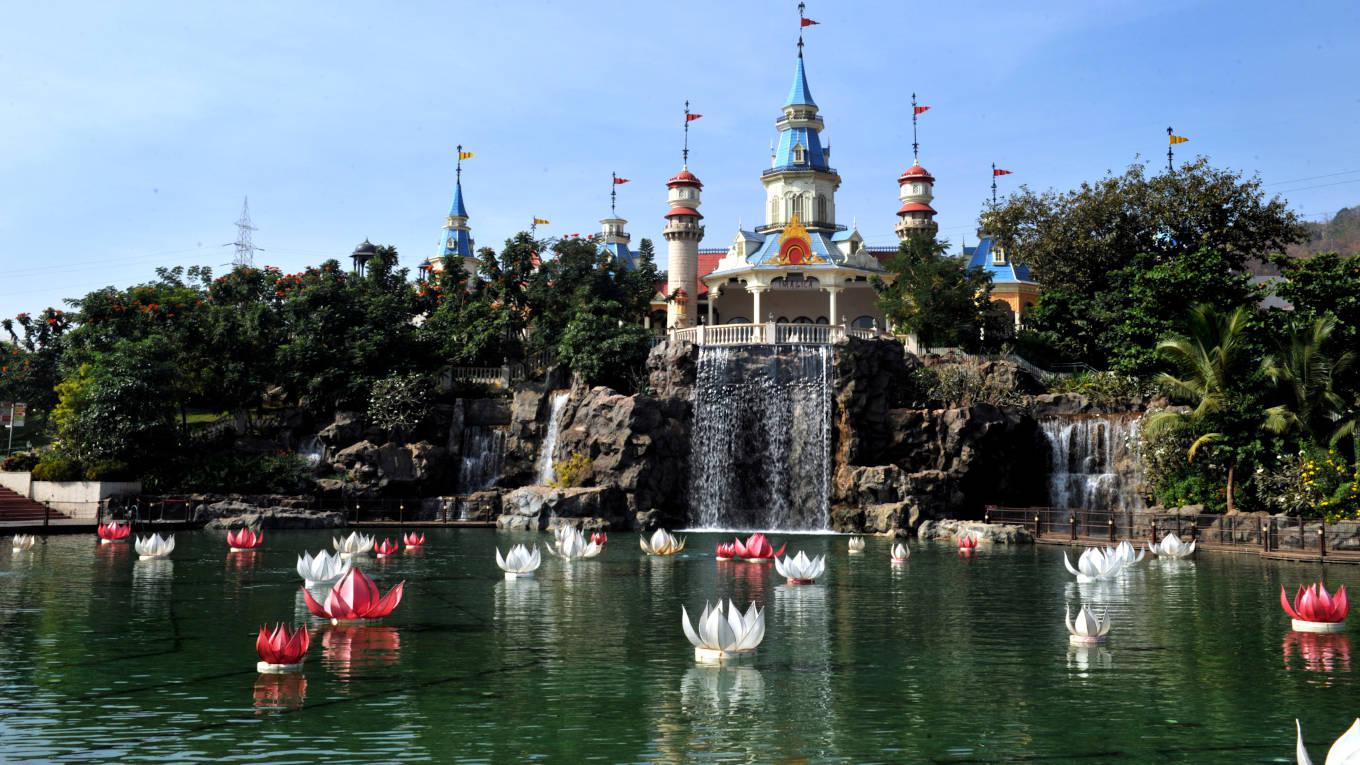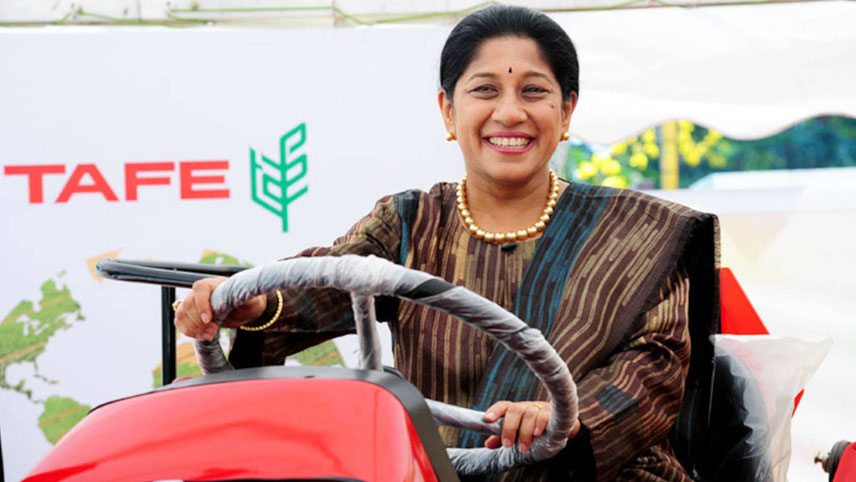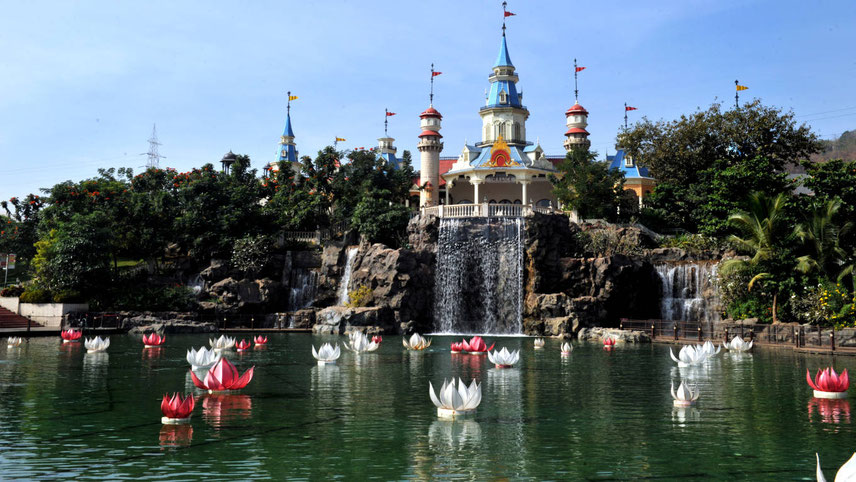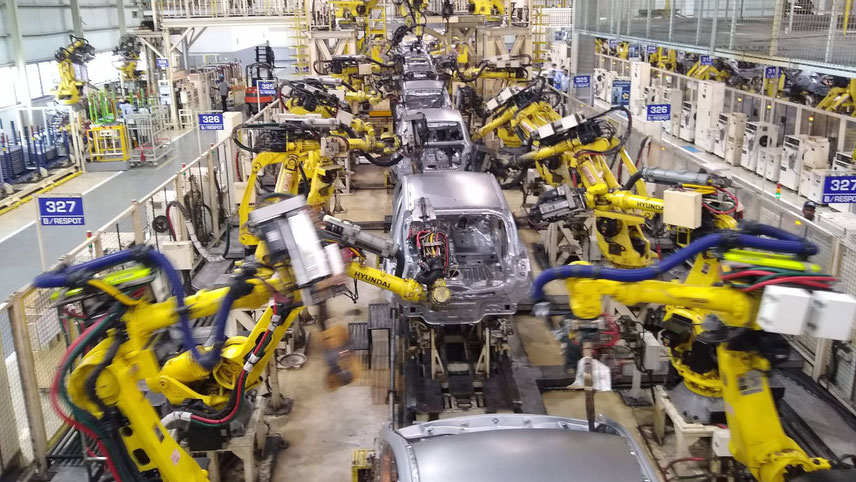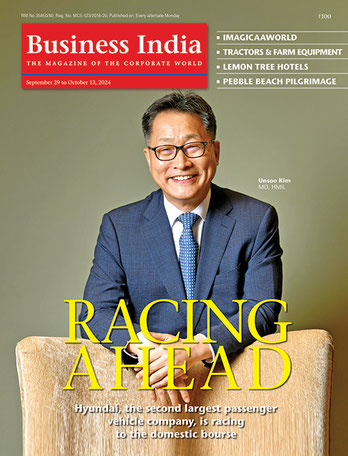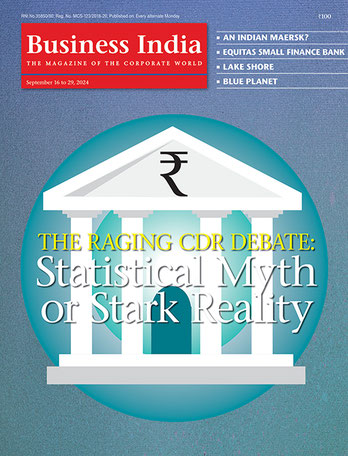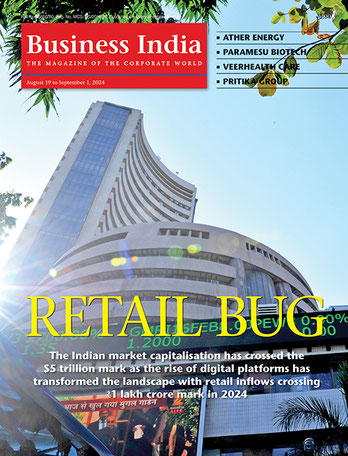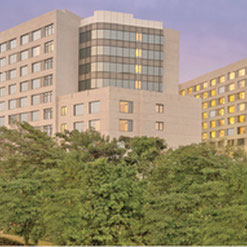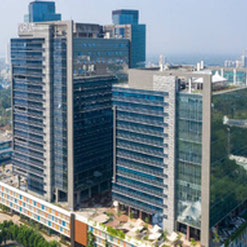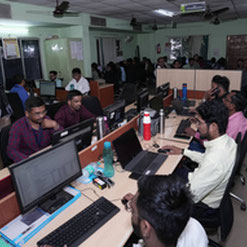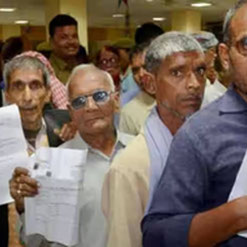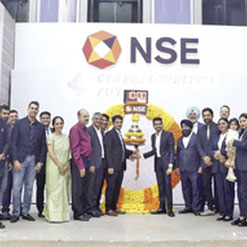-
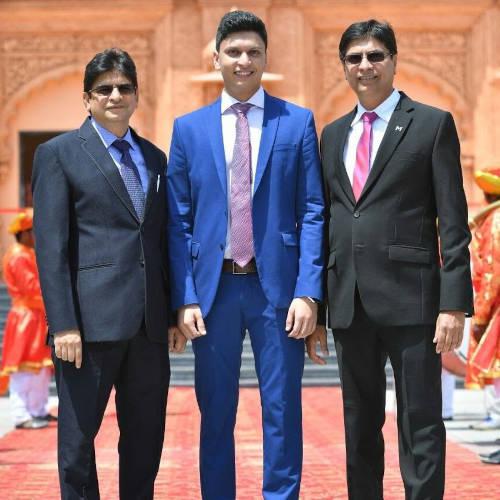
Girish, Jai and Manish: scripting a turnaround story
With a diverse portfolio that spans renewable energy, FMCG products, amusement and water parks, real estate and hotels, the Malpani group is valued at Rs3,000 crore. No stranger to the parks and recreation industry, the family has been involved in this segment since 2005. With a deep understanding of the business, the venture was initiated by Girish Malpani and Manish Malpani. It operates four parks under the Wet’n’Joy Water Park and Amusement Park brand, including the celebrated Wet’nJoy in Lonavala, which boasts of India’s first and largest Crazy River.
“We took a leap of faith into the theme and amusement park industry when it was still in its infancy, long before anyone imagined there was a market for leisure activities,” reminisces Manish Malpani, director, Malpani group. “Venturing into water parks before they became a summer staple and embracing spiritual tourism before it gained national priority, by our own courage and conviction. Today, we own India’s largest water park and India’s first devotional theme park”.
The group also owns Sai Teerth Theme Park in Shirdi, India’s first devotional theme park. Nestling 1.5 km from the Shirdi temple, Sai Teerth stands out for its unique offering: an immersive experience into the life of Sai Baba. The park, which received the Travellers’ Choice Award in 2023, brings to life key events in Sai Baba’s story through attractions like Dwarkamai, Lanka Dahan and Sabka Malik Ek.
Foray into religious tourism
Notably, it features India’s largest 5D theatre, an impressive animatronics show imported from London, and a new laser show launched in December 2023. The park has also introduced two new shows in Q1 2024-25, enhancing its appeal to visitors as Shirdi becomes one of the preferred destinations for religious tourism.
Jai Malpani highlights the surge in faith-based spiritual tourism in India, emphasising that travellers seek transformative experiences that go beyond traditional rituals. “Sai Teerth offers a unique blend of devotion, technology, and entertainment, providing an educational experience that deepens understanding of Sai Baba’s life, all just a short walk from the main temple. It’s truly a one-of-a-kind destination in India,” adds Shreya Malpani, an integral member of the promoter family.
The Malpani group’s recent integration and consolidation of its water parks, amusement park, and devotional park with IEL’s portfolio of theme park, water parks and five-star hotel called Novotel, has created one of India’s largest listed companies in the entertainment space. With a portfolio now encompassing eight parks, including the devotional theme park and a world-class 5-star hotel under one umbrella, the brand Imagicaa will operate across five locations. This restructuring has already drawn 1.2 million visitors in the first quarter alone, showcasing the growing popularity of the Malpani group’s expanding empire.
“Managing our parks involves far more than meets the eye. Beyond this relaxing journey is an intricate mechanical system, advanced projection technologies, extensive electrical setups, and industrial-level food and beverage services designed to cater to thousands of guests daily. Our operations extend to retail merchandising, sourcing and infrastructure management, including our 7.5 km of internal roads. We have been reinvesting in our existing projects and are now focusing on synergising our teams. By consolidating back-of-house functions of all the parks, we are scaling our parks strategically. Our talent pool, specialised in operating and maintaining large-scale rides and attractions, is unmatched. Our goal is to combine our expertise in F&B, retail, and technology to enhance the overall experience, increase wallet share and continue creating exceptional entertainment,” adds Jai.
-
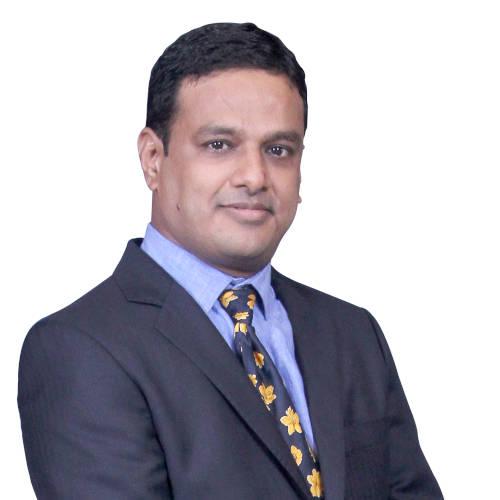
Bakshi: a win-win for all stakeholders
Asset-light model
In this landscape, Jai of Imagicaa, perfectly embodies the thrill and excitement that the amusement park represents. With a zest for adventure that rivals the park’s exhilarating rides, Jai is a dedicated half Ironman – a gruelling competition that involves a 1.9-km swim, a 90-km bike ride, and a 21.1-km run. He is not stopping there; he is gearing up for a full marathon and triathlon next year. His adventurous spirit extends beyond triathlons to paragliding and scuba diving. This zest for life is mirrored in his professional role, where his energetic personality and innovative mindset drive the company’s success.
With a background in economics and finance from institutions like LSE and experience in the US and London, Jai brings a global perspective to his leadership. “He is a vibrant, energetic personality and a perfect match for leading Imagicaa, making him as dynamic and engaging as the park itself,” affirms Bakshi.
As Imagicaa charts the new chapter under Jai, the home-grown success story continues to shine. The park has rapidly become a premier destination for events and leisure in India. Its New Year’s Eve celebrations attracted up to 20,000 visitors in a single day, and its enchanted and picturesque setting which are complimented by a five-star hotel are becoming increasingly popular for destination weddings and photoshoots.
Imagicaa has quickly become the go-to choice for school picnics over the years, with over 400,000 school children visiting annually. The company is strategically expanding its footprint while maintaining an asset-light model. By leasing land rather than purchasing it, the group is focusing on capital in developing and enhancing its parks.
“We want greater flexibility and scalability in our operations,” remarks Mayuresh Kore, CFO, IEL. “Our asset-light model, wherein we opt for long-term lease of land/PPP mode, enables us to maximise growth, while minimising capital expenditures. We aim to add one theme park every year for the next five years. The group operates seven parks and has one under construction in Indore. In addition to Indore, Imagicaa is gearing up for new projects, including a landmark project on the Sabarmati Riverfront in Ahmedabad. The Sabarmati project is a milestone for us and our inaugural park in the state of Gujarat. Located at the heart of the city, this 11-acre park will offer a blend of indoor and outdoor attractions, dining and entertainment”.
The group’s expansion also includes projects in Uttarakhand, Chandigarh, Goa and Noida. By leveraging public-private partnerships (PPP), they are aiming to gain long-term land leases, at favourable prices with tax benefits. “We are engaged in talks with various state governments interested in having us open new parks, which will boost their tourism and travel industries,” adds Jai. “With our strong foothold in Western India in Maharashtra and Gujarat and our upcoming park in Indore, we are now focussing on expanding into Central and Northern India. If one looks at our parks on a consolidated basis, the company’s annual revenue adds up to Rs400 crore and EBIDTA of about Rs175 crore”.
Government support
With a focus on promoting India as a global tourist destination, the Union government allocated Rs2,400 crore for tourism in 2024-25. The government has been proactive in promoting tourism, with various states offering favourable policies and incentives. For example, states are providing capital subsidies, tax benefits and infrastructural support to enhance the sector. The government’s focus on tourism, infrastructure and entertainment coupled with increase in per capita income, favourable demographics and shift in spending patterns towards discretionary expenses is creating a conducive environment for growth for the company.
-
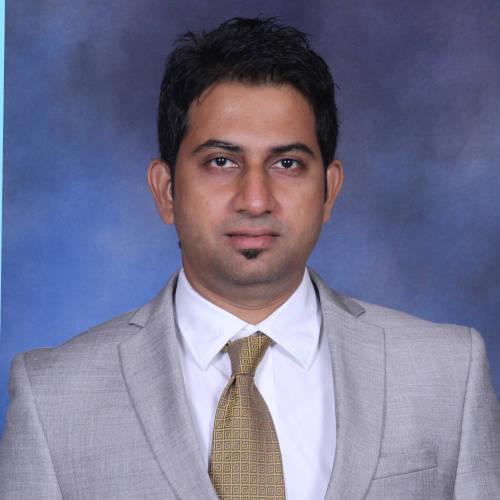
Kore: gearing up for new projects
Imagicaa’s expansion strategy includes targeting Tier I and II cities across India, tapping into under-served markets. “Tourism is a major economic driver which has a significant multiplier effect on the local economy, creating employment and boosting local businesses. Our business acts as anchor destinations for states to increase visitor duration and spending. We see tremendous potential in Tier II towns where entertainment options are limited but demand is high. By establishing smaller parks in these areas we can cater to the growing local markets,” adds Jai.
With a bigger and more stable balance sheet post-consolidation, Imagicaa is well-positioned to tap into its bright growth prospects, increase cross-selling opportunities and expand its reach and profitability. The company’s 3C strategy – focussed on urban clusters, catchment expansion and connectivity – aligns with India’s evolving economic landscape.
By targeting urban clusters, it is catering to the growing urban population and their increasing demand for high-quality leisure options. Catchment expansion involves reaching new geographic areas to attract a broader audience, while enhancing connectivity ensures easy access to the park, aligning with the trend of integrating entertainment facilities into the rapidly developing infrastructure of roadways and airways.
Along with synergising and integrating its operations, major efforts have been undertaken to increase the impact on social and environmental sustainability and minimise carbon footprint. Imagicaa’s rain harvesting reservoir at Khopoli stands out as a prime example, with treated water utilised across the Water Park, Theme Park, and hotel facilities. At their water park in Lonavala the company is able to secure 4-7 months of annual water supply from harvested rainwater alone.
“Being active in environmental stewardship and implementing strategies to conserve resources is integral to our operations. For instance, we’ve adopted the Regenerative Media Filtration System at our water parks, which cuts water waste by 90 per cent, compared to traditional sand-based systems. Though this system costs three times more, we believe in prioritising sustainability over cost to create long-term value for the community,” says Jai.
The group is also dedicated to reducing plastic use and minimising paper consumption across their operations. At their five-star hotel, Novotel in Khopoli, they have completely eliminated plastic, providing guests with recycled and reusable glass bottles from their on-site bottling plant.
Renewable energy projects have been a key focus, with Wet’n’Joy primarily operating on solar power, and Imagicaa drawing close to 60 per cent of its energy from renewable sources. At the group level, the portfolio includes solar and wind energy projects with more than 600 MW of power generation capacity across eight states.
Another key ingredient has been their commitment to digital transformation and adopting a bold approach towards technology upgradation. “We were pioneers in introducing ERP systems in many of our processes back in 1995, when digitalisation was still in its nascent stage in India.” Jai reveals.
Their digital-first approach includes the development of Amuze, an innovative in-house software. This tool is now deployed across all their parks, streamlining everything from retail and food services to websites. The result? Opening new parks and managing existing ones has become a breeze, thanks to the SAP and Amuse systems. With real-time insights into park operations and enhanced planning and marketing capabilities, the company is setting the pace for the industry.
-
We took a leap of faith into the theme and amusement park industry when it was still in its infancy, long before anyone imagined there was a market for leisure activities
Beyond their facilities, which create direct and indirect employment and drive local community growth by attracting large crowds and developing infrastructure, the Malpani group heralds social initiatives that directly support local communities. They supply water free of cost to neighbouring villages, supporting local water needs apart from many other CSR activities.
Transforming Sangamner
The group strongly believes in evolving with its people and growing alongside the community, and has played a major role in transforming their home town Sangamner and establishing it on the global industrial map.
It owns Dhruv Global School, recognised for being the Best in Architecture in 2010 with campuses in Sangamner, Pune, and Dubai, housing more than 2,000 students. The educational philosophy at Dhruv Global School is based on Howard Gardner’s theory of multiple intelligences, which posits that every individual has seven distinct types of intelligence: linguistic, logical-mathematical, spatial, bodily-kinesthetic, musical, interpersonal, and intrapersonal.
The school emphasises nurturing these intelligences through a diverse curriculum that includes music, dancing, and sports. An evidence to these results has been the school’s outstanding performance in the recent Khelo India games, where 15 out of 20 participants from Sangamner won gold medals. They also run a charitable hospital in Sangamner, where all services are provided for just 10 rupees and organise mass marriages, or Samuah Vivah, for people from all walks of life and religions for just one rupee. These events lighten the financial load on families, promote social equality, and ease the pressure of dowries, creating a sense of unity and community spirit. Over the years the Malpani group has emerged as a fulcrum around which the social fabric of Sangamner has been structured.
As this homegrown group takes the reins, it is not just raising the bar – it is rewriting the rulebook for entertainment destinations in India. In a country where life’s tempo races ahead, the Malpani group is ensuring their parks meet global standards of sustainability while offering a thrilling escape from the everyday grind. By setting this new benchmark, they’re making Imagicaa the go-to amusement park that promises to deliver both excitement and relaxation, proving that they have got the magic touch for modern leisure.
